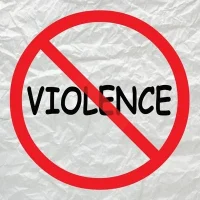Deadline: 04-Sep-20
The European Union (EU) has announced a call for proposals for Civil Society in Development with the objective to support CSOs contributions towards reinforced governance, accountability and inclusive policy-making, as envisaged in the Strategy and Multi-Annual Indicative Programme of the Thematic Programme “Civil Society Organisations and Local Authorities 2014-2020”.
The current call for proposals aligns with priorities of the EU Roadmap for Engagement with Civil Society in Tajikistan 2018-2020. (Priority 5 Inclusiveness of formal space for dialogue is enhanced for rural CSOs, representing grass-root population and socially excluded groups and Priority 6 Civil society plays its watchdog role and meaningfully participates in the strengthening and monitoring of activities promoted in the priority/focal sectors of the EU and the EU MS cooperation with the Government of Tajikistan).
It also focuses on Sustainable Development Goals (SDGs) of the 2030 Agenda, particularly on poverty, healthy lives, inclusive and quality education for all, achieve gender equality and empowerment of all women and girls, availability and sustainable management of water and sanitation for all, promoting inclusive, and sustainable economic growth which is particularly central to the EU cooperation with Tajikistan.
Objectives and Priorities
Within this general aim, and in line with the priorities for the EU engagement with civil society in Tajikistan, the following objectives of the call will be pursued:
The global objective of this call for proposals is:
- Supporting CSOs as actors in governance and accountability
The specific objectives of this call for proposals are:
- Facilitating CSOs as partners in;
- promoting and increasing opportunities for young people;
- supporting people with disabilities.
Priorities
CSO support for people with disabilities: The Call Aims at supporting initiatives for the protection of the most vulnerable segment of the population with disability and children with high social risk in non-institutionalised environments, and day-care centres, and those at home-based support in close involvement of family and community stakeholders. It is expected that proposed actions will have a long-term positive impact while also responding in the short term to the challenges arising from the COVID-I9 pandemic. These will include but will not be limited to:
- development and enforcement of protection standards, methodologies, and practices for people with disabilities and other vulnerable categories of the population;
- development of long-term, effective and transparent coordination, monitoring and evaluation service delivery for vulnerable categories of the population;
- protecting the rights of people with disabilities, their social inclusion and active participation in society;
- strengthening and enforcement of procurement procedures allowing for hiring non-governmental protection providers.
Better expression and self-development opportunities for youth and improvement of their contribution to decision-making: It is expected that the proposed actions will include but will not be limited to:
- foster an enabling environment for youth employment and income generation activities and strengthening of youth culture and trade associations;
- promote and develop strategies, vocational training and opportunities to become self-employed by leveraging innovative solutions and use of digital technologies;
- promote youth participation in social, civic, political and economic life, while furthering their involvement in the decision-making process and contribution to inclusive growth and sustainable development;
- establish new linkages and cross-fertilisation opportunities between youth networks and national policy-making institutions.
Funding Information
The overall indicative amount made available under this call for proposals is EUR 2,909,305.00. The contracting authority reserves the right not to award all available funds.
Size of grants
Any grant requested under this call for proposals must fall between the following minimum and maximum amounts:
- minimum amount: EUR 200 000
- maximum amount: EUR 400 000
Eligibility Criteria
Lead applicant(s)
In order to be eligible for a grant, the lead applicant must:
- be a legal person;
- be non-profit-making;
- be a specific type of organisation such as non-governmental organization, public sector operator, local authority, international (inter-governmental) organisation as defined by Article 156 of the EU Financial Regulation;
- be established in a Member State of the European Union or in the Republic of Tajikistan or in other eligible countries as stipulated in the basic act “Regulation (EU) No 236/2014 of the European Parliament and of the Council of 11 March 2014 laying down common rules and procedures for the implementation of the Union’s instrument for financing external action;
- be directly responsible for the preparation and management of the action with the co-applicant(s) and affiliated entity(ies), not acting as an intermediary.
Co-applicant(s)
- Lead applicants established in Tajikistan must act with at least one co-applicant established in Tajikistan.
- Lead applicants not established in Tajikistan must act together with at least two co-applicants established in Tajikistan.
- Actions proposed by lead applicants, that are not established in Tajikistan must be based on local initiatives and should ensure genuine involvement of co-applicants established in Tajikistan during all stages of the implementation.
- Applications must demonstrate expected benefits and added value of the partnership in responding to identified local needs. The Evaluation Committee will attach particular importance to the “quality of partnership”.
Affiliated entity(ies)
Only the following entities may be considered as affiliated entities to the lead applicant and/or to co-applicant(s):
- Only entities having a structural link with the applicants (i.e. the lead applicant or a co-applicant), in particular a legal or capital link.
- This structural link encompasses mainly two notions:
-
- Control, as defined in Directive 2013/341ED on the annual financial statements, consolidated financial statements and related reports of certain types of undertakings:
- Entities affiliated to an applicant may hence be:
- Entities directly or indirectly controlled by the applicant (daughter companies or first-tier subsidiaries). They may also be entities controlled by an entity controlled by the applicant (granddaughter companies or second-tier subsidiaries) and the same applies to further tiers of control;
- Entities directly or indirectly controlling the applicant (parent companies). Likewise, they may be entities controlling an entity controlling the applicant;
- Entities under the same direct or indirect control as the applicant (sister companies).
- Entities affiliated to an applicant may hence be:
- Membership, i.e. the applicant is legally defined as an e.g. network, federation, association in which the proposed affiliated entities also participate or the applicant participates in the same entity (e.g. network, federation, association,…) as the proposed affiliated entities.
- Control, as defined in Directive 2013/341ED on the annual financial statements, consolidated financial statements and related reports of certain types of undertakings:
-
For more information, visit https://bit.ly/3jIwVHs









































